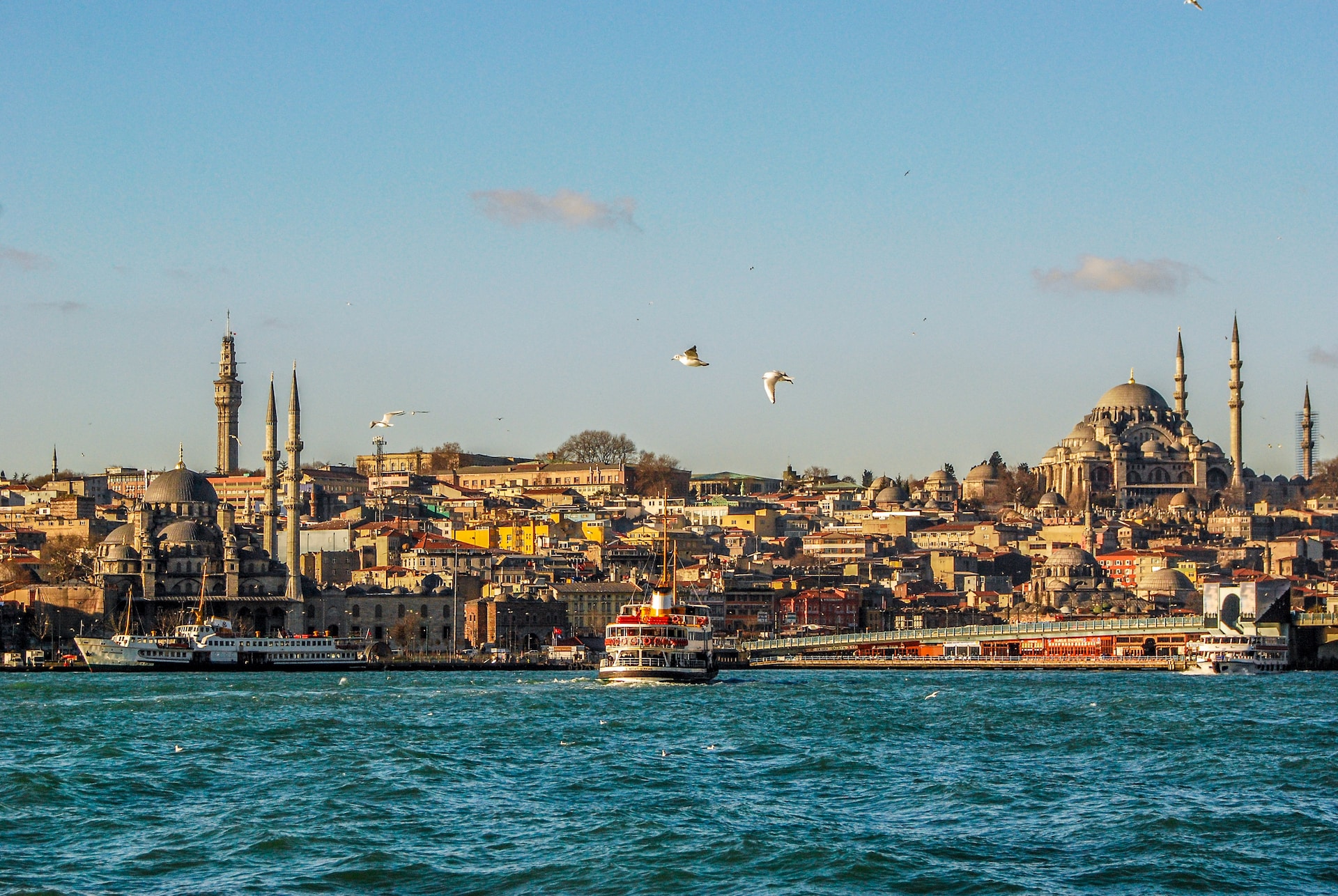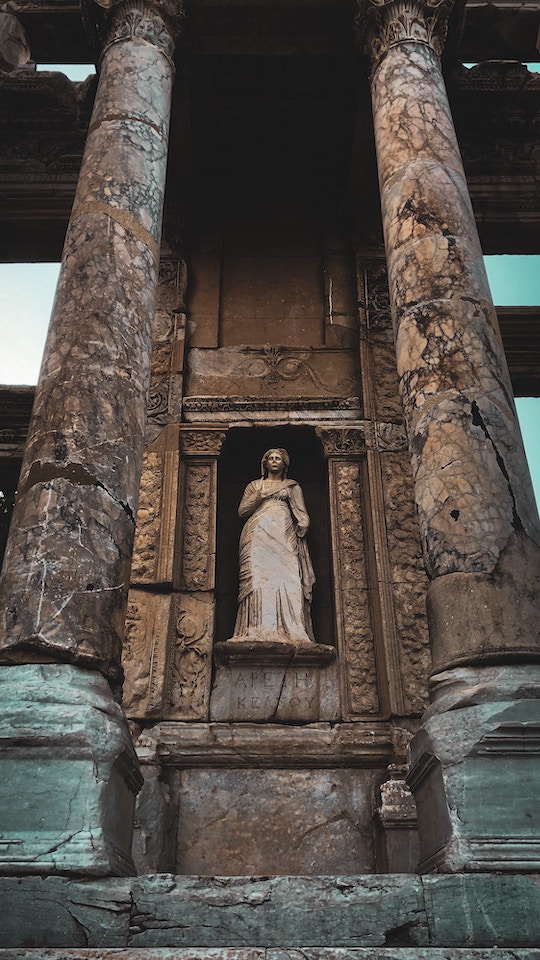Yes, US citizens need a visa to travel to Turkey. You can obtain a visa on arrival at the major international airports in the country, but there’s also an e-visa option that can be obtained online.
Welcome to the captivating country of Turkey, a land where ancient history blends harmoniously with breathtaking natural beauty and vibrant modern cities. Situated at the crossroads of Europe and Asia, Turkey offers a unique cultural fusion and a rich tapestry of experiences for travelers. From the bustling streets of Istanbul to the idyllic coastal towns, Turkey presents a wealth of wonders waiting to be explored.
Turkey is a vast country with diverse regions that showcase its remarkable heritage and stunning landscapes. In the northwest, Istanbul stands as a vibrant metropolis bridging two continents, where you can marvel at iconic landmarks, like the Hagia Sophia, Blue Mosque, and Topkapi Palace. As you venture further, the Aegean region reveals its historical treasures, including the magnificent ruins of Ephesus, the ancient city of Troy, and the dazzling white travertine terraces of Pamukkale.
Moving south along the Mediterranean coast, you’ll encounter a picturesque blend of turquoise waters, sandy beaches, and ancient cities. Antalya, often referred to as the Turkish Riviera, boasts stunning coastal resorts and is the gateway to the ancient Lycian Way, an enchanting trek through ancient ruins and charming villages. Inland, the surreal landscapes of Cappadocia captivate visitors with fairytale-like rock formations, cave dwellings, and mesmerizing hot-air balloon rides.
Venturing eastward to rugged Central Anatolia, majestic Mount Ararat looms, inviting adventurers to conquer its summit. Here you can explore the underground cities of Derinkuyu and Kaymakli or witness the lunar-like landscapes of the Salt Lake, Tuz Golu. And for those seeking tranquility, the pristine beaches and crystal-clear waters of the Aegean and Mediterranean coasts provide ample opportunities for relaxation and indulgence.
Turkey is a country that offers something for everyone, be it history enthusiasts, nature lovers, or cultural explorers. Its vibrant bazaars, mouthwatering cuisine, and warm hospitality further enhance the allure of this extraordinary destination. Whether you’re strolling through the vibrant streets of Istanbul, exploring ancient ruins, or indulging in a traditional Turkish bath, a journey to Turkey is bound to leave an indelible mark on your heart and mind. Get ready to embark on a remarkable adventure as you uncover the treasures that await within the enchanting land of Turkey.
Essential Travel Information
-
Official Language
Turkish
-
Time Zone
Eastern European Time; Eastern European Summer Time (UTC+3)
-
Climate
Turkey experiences a diverse climate due to its geographical location. In general, the coastal regions along the Aegean and Mediterranean have a Mediterranean climate with hot, dry summers and mild, wet winters. The inland areas have a more continental climate, with hot summers and cold winters. Eastern Turkey has a harsher climate with cold winters and hot summers, while the Black Sea region enjoys a mild, humid climate.
-
Country Calling Code
+90
-
Electricity
230V/50Hz (plug types C and F)
-
Capital City and US Embassy
Ankara
-
Currency
Turkish lira (₺; TRY); current exchange rate, 1 US dollar = 26.55 Turkish lira (exchange rate subject to change)
Unlocking the World: Adventures Await on Your Traveler's Path
Do US Citizens Need a Visa for Travel to Turkey?
Turkey Visa Requirements for US Citizens
Here are some visa requirements to keep in mind when looking to obtain a Turkey visa:
- Your passport must be valid for at least six months beyond your travel dates.
- You will need to have at least one blank page in your passport for entry and exit stamps.
- You may be asked to show proof of onward travel when you arrive in Turkey.
- It is a good idea to purchase travel insurance before you travel to Turkey.
Turkey Tourist Visa
US citizens can obtain an e-visa for Turkey online. The e-visa is valid for 30 days and allows for a single entry into Turkey.
To apply for an e-visa, either via Entriva or the Turkish government’s e-visa website, you will need to provide your passport information, travel dates, and a credit card number to pay your visa fees.
Turkey Business Visa
The visa requirements and documents needed to obtain a business visa for Turkey vary depending on your nationality. However, in general, you will need to provide the following:
- A valid passport
- A completed visa application form
- A recent passport-style photo
- A letter from your employer stating the purpose of your trip and your company’s relationship with Turkey
- Proof of financial support (e.g., bank statement, credit-card statement)
- Proof of onward travel (e.g., airline ticket)
You may also be asked to provide additional documents, such as a letter of invitation from a Turkish person, company or organization. Discuss with your Turkish counterparts if it’s possible to get a letter of invitation before applying for a Turkey visa.
There are a few different types of business Turkey visas. They are:
- Single-entry business visa: This visa allows you to enter Turkey once and stay up to 90 days.
- Multiple-entry business visa: This visa allows you to enter Turkey multiple times and stay up to 90 days each time.
- Long-term business visa: This visa allows you to stay in Turkey for up to one year.
Before applying for a Turkey business visa, assess the reasons you are going to Turkey and how long you wish to stay. That will help you decide which business visa you need.
General Travel Requirements to Enter Turkey
To enter Turkey, there are general travel requirements that US citizens need to fulfill. These requirements include a valid passport, a Turkey visa, and other required documents, potentially vaccination or health-related documents.
First and foremost, US citizens must possess a valid passport with an expiration date at least six months beyond the intended period of stay in Turkey. It is essential to ensure that your passport meets the validity requirements to avoid complications during processing time.
Regarding visas, US citizens have the option to apply for an electronic visa online in advance or obtain a visa on arrival at Turkish airports. The e-visa can be easily obtained by completing an online application and making the necessary payment before your trip. Alternatively, you can choose to get a visa on arrival, but it is recommended to obtain an electronic visa beforehand to avoid potential delays at the airport.
There are no vaccination requirements or health-related documents needed for entry into Turkey. However, it is always a good idea to be up-to-date on your vaccinations, especially if you are traveling to rural areas or if you are planning on spending time outdoors.
Here are some of the most common vaccinations that are recommended for travelers to Turkey:
- Hepatitis A: This vaccine protects against a liver infection that can be spread through contaminated food or water.
- Hepatitis B: This vaccine protects against another liver infection that can be spread through blood or sexual contact.
- Rabies: This vaccine protects against a deadly virus that can be spread through the bite of an infected animal.
- Typhoid fever: This vaccine protects against a bacterial infection that can be spread through contaminated food or water.
It is best to consult with your doctor or general practitioner before taking any shots or vaccinations.
Turkey Travel Restrictions
The following travel warnings are in effect for Turkey:
- The US Department of State has issued a Level 2 travel advisory for general travel to Turkey, which means visitors should exercise increased caution due to a heightened risk of terrorism and arbitrary detentions. A Level 4: Do Not Travel alert is in effect for Sirnak Province, Hakkari Province, and any area within six miles (10km) of the Syrian Border.
- The UK Foreign and Commonwealth Office advises against travel to parts of Turkey, including the border with Syria, the city of Sirnak, and Hakkari province.
- The Australian Department of Foreign Affairs and Trade has issued Levels 2, 3, and 4 travel advisories for Turkey, which means you should exercise a high degree of caution overall, avoid non-essential travel to the provinces of Hakkari and Sirnak, and do not travel within 10km of the border with Syria, respectively.
If you are planning to travel to Turkey, it is important to be aware of the risks and to take precautions. Check with your government’s travel-advisory website for the latest information.
Conflict
The Turkish government is currently engaged in a military conflict against the Kurdistan Workers’ Party (PKK) in the country’s southeast. The PKK is a Kurdish militant group that has been fighting for independence from Turkey for decades. The conflict has caused some disruption to travel in the region, and there is a risk of terrorist attacks. It is not advisable to travel to or near that part of the country.
Sickness
There is a risk of contracting diseases such as hepatitis A, hepatitis B, rabies, and typhoid fever in Turkey. It is important to be up-to-date on your vaccinations before traveling to Turkey.
The COVID-19 pandemic is still ongoing, and the Turkish government has implemented a number of measures to control the spread of the virus, including mandatory mask wearing and social distancing. However, the risk of contracting the virus remains.
Natural Disasters
Turkey is located in a seismically active region, and there is a risk of earthquakes, floods, and landslides. It is important to be aware of the risks of natural disasters and to take precautions when traveling to Turkey.
Health and Safety in Turkey
Turkey is mostly a safe country to visit, but there are some risks that travelers should be aware of.
Crime
The most common crime in Turkey is petty theft, such as pickpocketing and bag snatching. Travelers should be aware of their surroundings and take precautions to protect their belongings. It is also a good idea to leave valuables at home or in a hotel safe.
Terrorism
There is a risk of terrorism in Turkey, particularly in the southeast of the country, due to the military conflict between the Turkish government and the PKK.
Other Risks
Other risks to be aware of in Turkey include:
- Road accidents: Turkey has a high rate of road accidents. Travelers should be aware of the dangers of driving in Turkey and take precautions to stay safe.
- Health risks: There are a number of health risks in Turkey, so travelers should ensure their vaccinations are up-to-date prior to departure.
- Natural disasters: Turkey is located in a seismically active region, and there is a risk of earthquakes, floods, and landslides.
Local Laws for Travelers to Turkey
Foreign nationals and travelers visiting Turkey should be aware of the local laws and cultural and religious norms to ensure a smooth and enjoyable trip. Here are some important customs, laws, and regulations to keep in mind:
- Drug laws: Turkey has strict laws regarding drug possession and trafficking. It is illegal to possess, use, or traffic drugs, including marijuana. Violations can result in severe penalties, including imprisonment.
- Cultural and religious sensitivity: Turkey is a predominantly Muslim country with strong cultural and religious values. Travelers should respect local customs, traditions, and religious sites. Modest attire is recommended, especially when visiting mosques or religiously significant places.
- Photography restrictions: It is prohibited to take photographs of military installations, government buildings, or security personnel. Always be mindful and ask for permission before photographing individuals, especially locals.
- Demonstrations and political activities: Participating in unauthorized demonstrations or engaging in political activities as a foreign traveler is illegal. It is advisable to avoid political discussions and gatherings that may attract unwanted attention or cause unrest.
- LGBTQ+ rights: While homosexuality is legal in Turkey, public displays of affection may not be widely accepted in certain areas. LGBTQ+ travelers should exercise caution and discretion, and be mindful of local attitudes and cultural sensitivities.
- Antiquities and artifacts: It is illegal to export antiquities and archaeological artifacts without proper authorization. Purchasing such items from unauthorized dealers is also illegal. Make sure to obtain any necessary permits if you plan to purchase or export cultural artifacts.
- Respect for Turkish authorities: Show respect and cooperation when dealing with Turkish authorities, including police officers and immigration officials. Follow instructions, carry proper identification, and comply with any requests or regulations.
If you’re arrested and imprisoned in Turkey, seek legal assistance immediately and contact your country’s embassy or consulate for guidance on what to do next.
Money, Banking, and Currency in Turkey
The currency of Turkey is the Turkish lira (TRY). Here is a brief overview of money, banking, and currency-related information for travelers visiting Turkey:
- Currency Exchange: Upon arrival in Turkey, you can exchange your foreign currency, such as US dollars or euros, for Turkish lira at airports, banks, currency-exchange offices, or authorized exchange bureaus. It is recommended to compare exchange rates and fees to get the best deal. Major credit and debit cards are widely accepted in most hotels, restaurants, and stores, particularly in tourist areas.
- ATMs: ATMs are widely available throughout Turkey, including in cities, towns, and popular tourist destinations. ATMs generally offer the option to withdraw cash in Turkish lira. It is advisable to notify your bank in advance about your travel plans to Turkey to ensure that your card will work internationally and to inquire about any foreign transaction fees or withdrawal limits.
- Credit Cards: Major credit cards, such as Visa and Mastercard, are widely accepted in Turkey, especially in larger establishments. However, it is always a good idea to carry some cash for smaller businesses, local markets, or rural areas where credit-card acceptance may be limited.
- Banking Hours: Most banks in Turkey are open from Monday to Friday, between 9:00 am and 5:00 pm. Some banks may have shorter working hours on Saturdays or be closed on Sundays, though ATMs are available 24/7 for cash withdrawals.
- Tipping: Tipping is customary in Turkey, particularly in restaurants and cafes and for taxis, hotel staff, and tour guides. It is common to tip around 10% of the total bill as a gesture of appreciation for good service. However, tipping is discretionary, and it is always best to check if a service charge has already been included in the bill before leaving a tip.
Overall, it is advisable to carry a mix of cash and cards while traveling in Turkey, ensuring that you have enough local currency for smaller expenses and in case of any situations where cards may not be accepted.
Preparing for Your Turkey Trip
Obtaining a visa is an essential part of planning your trip. At Entriva, we can easily and efficiently help you with every aspect of getting a Turkey visa. Start your visa application process.
Essential Travel Information
-
Official Language
Turkish
-
Time Zone
Eastern European Time; Eastern European Summer Time (UTC+3)
-
Climate
Turkey experiences a diverse climate due to its geographical location. In general, the coastal regions along the Aegean and Mediterranean have a Mediterranean climate with hot, dry summers and mild, wet winters. The inland areas have a more continental climate, with hot summers and cold winters. Eastern Turkey has a harsher climate with cold winters and hot summers, while the Black Sea region enjoys a mild, humid climate.
-
Country Calling Code
+90
-
Electricity
230V/50Hz (plug types C and F)
-
Capital City and US Embassy
Ankara
-
Currency
Turkish lira (₺; TRY); current exchange rate, 1 US dollar = 26.55 Turkish lira (exchange rate subject to change)
Unlocking the World: Adventures Await on Your Traveler's Path
Get Travel Visa















